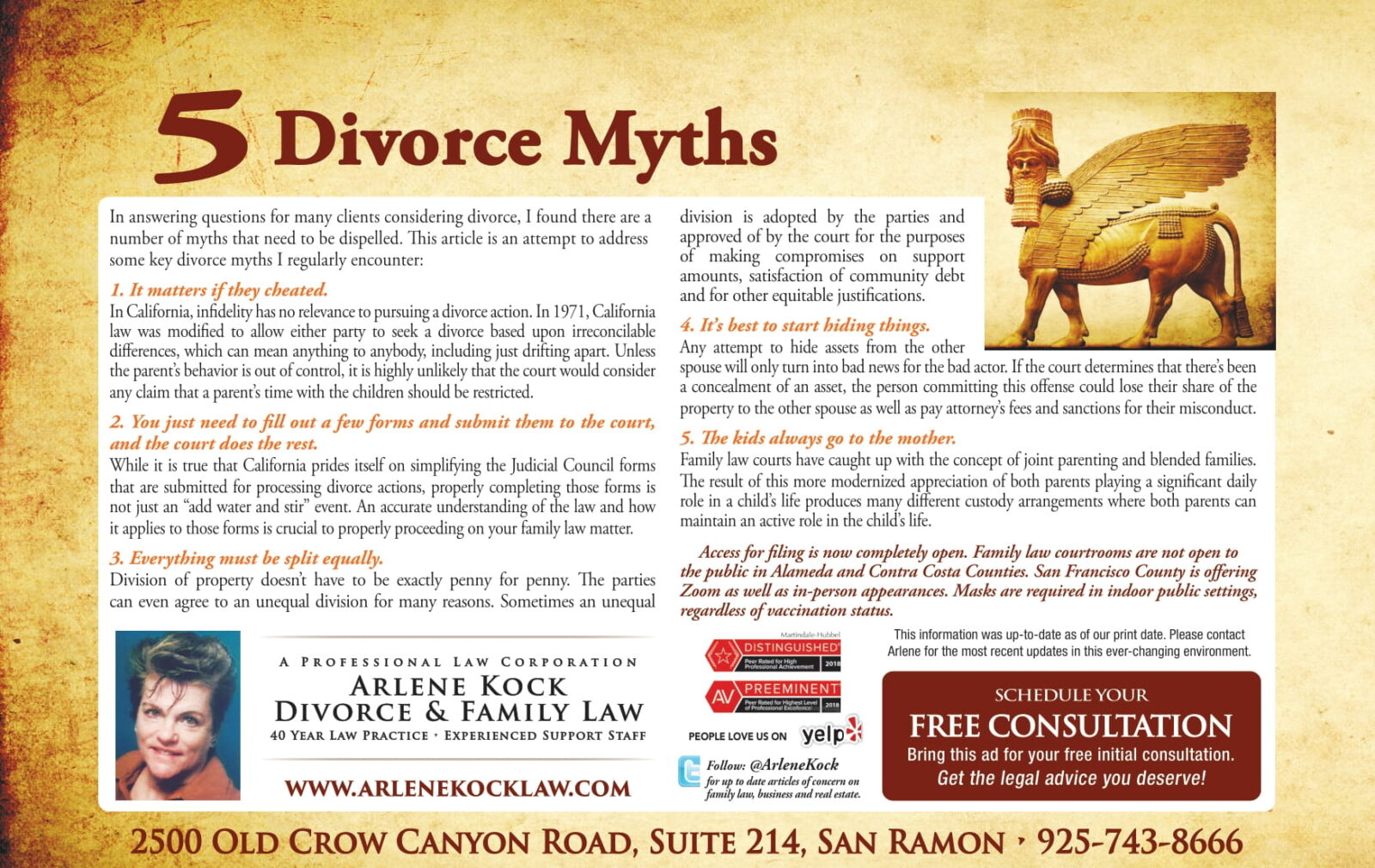In answering questions for many clients considering divorce, I found there are a number of myths that need to be dispelled. This article is an attempt to address some key divorce myths I regularly encounter:
1. It matters if they cheated.
In California, infidelity has no relevance to pursuing a divorce action. In 1971, California law was modified to allow either party to seek a divorce based upon irreconcilable differences, which can mean anything to anybody, including just drifting apart. Unless the parent’s behavior is out of control, it is highly unlikely that the court would consider any claim that a parent’s time with the children should be restricted.
2. You just need to fill out a few forms and submit them to the court, and the court does the rest.
While it is true that California prides itself on simplifying the Judicial Council forms that are submitted for processing divorce actions, properly completing those forms is not just an “add water and stir” event. An accurate understanding of the law and how it applies to those forms is crucial to properly proceeding on your family law matter.
3. Everything must be split equally.
Division of property doesn’t have to be exactly penny for penny. The parties can even agree to an unequal division for many reasons. Sometimes an unequal division is adopted by the parties and approved of by the court for the purposes of making compromises on support amounts, satisfaction of community debt and for other equitable justifications.
4. It’s best to start hiding things.
Any attempt to hide assets from the other spouse will only turn into bad news for the bad actor. If the court determines that there’s been a concealment of an asset, the person committing this offense could lose their share of the property to the other spouse as well as pay attorney’s fees and sanctions for their misconduct.
5. The kids always go to the mother.
Family law courts have caught up with the concept of joint parenting and blended families. The result of this more modernized appreciation of both parents playing a significant daily role in a child’s life produces many different custody arrangements where both parents can maintain an active role in the child’s life.
Access for filing is now completely open. Family law courtrooms are not open to the public in Alameda and Contra Costa Counties. San Francisco County is offering Zoom as well as in-person appearances. Masks are required in indoor public settings, regardless of vaccination status.


